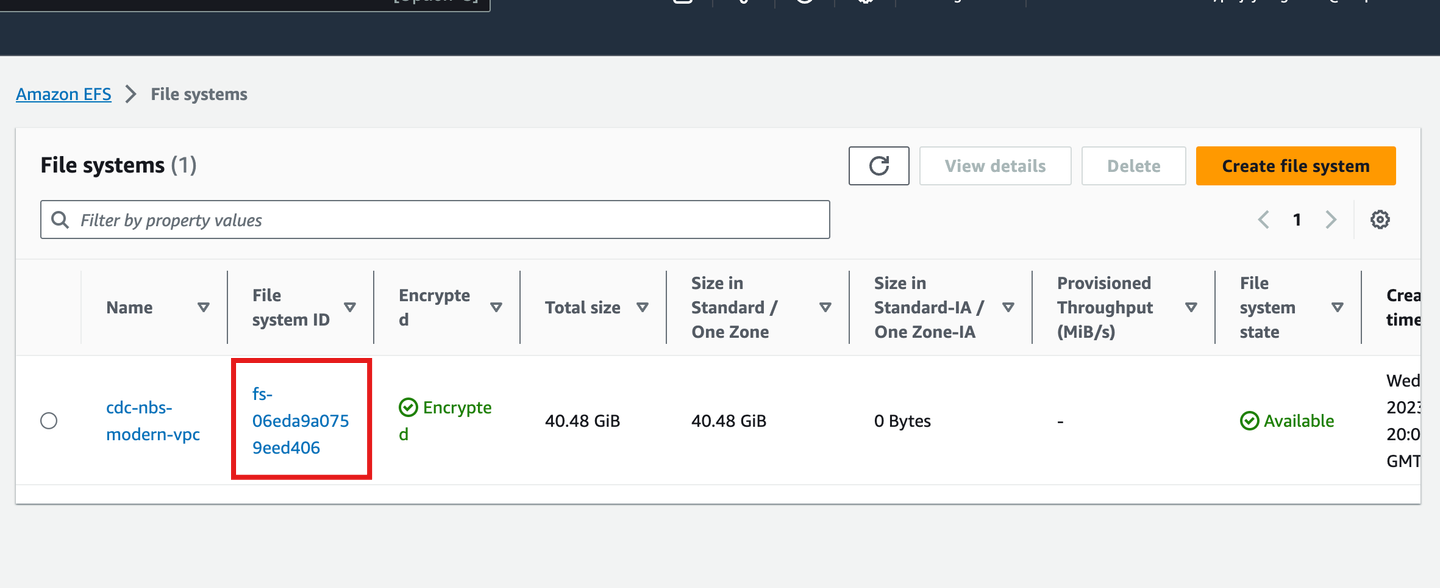Table of contents
Deploy Data Sync Service API via helm chart
This guide sets out the detailed steps to install NBS 7 Data Sync service that will be used to extract the data for NNDSS and STLT Reporting needs. The Data Sync service provides a secure API to connect to the databases in the NBS cloud, with an API endpoint service and without interrupting any operations On-Prem at Jurisdictions.
Data Sync Microservice
-
Please use the values file supplied as part of nbs-helm-vX.Y.Z.zip. Use this link to download the zip file (scroll down to the Assets listed for the latest or previous releases). The
values.yamlfile should be undercharts\nnd-service\values.yaml. Values for ECR repository, ECR image tag, db server endpoints, and ingress host should be provided in thevalues.yamlfile. -
Confirm that the following DNS entry were created and pointed to the network load balancer in front of your Kubernetes cluster (make sure this is the ACTIVE NLB provisioned via nginx-ingress in the base install steps). This should be done in your authoritative DNS service (e.g., Route 53). Please replace
example.comwith the appropriate domain name in thevalues.yamlfile. NND service Application – e.g.,data.example.com -
Update the image repository and tag with the following:
image: repository: "quay.io/us-cdcgov/cdc-nbs-modernization/nnd-service" pullPolicy: IfNotPresent tag: <release-version-tag> e.g v1.0.1 -
Update the values file with the jdbc connection values in the following format. The dbserver value is just a database server endpoint. Please don’t include the port number.

jdbc: dbserver: "EXAMPLE_DB_ENDPOINT" username: "EXAMPLE_ODSE_DB_USER" password: "EXAMPLE_ODSE_DB_USER_PASSWORD" -
Update the
values.yamlto populateefsFileSystemIdwhich is the EFS file system id from the AWS console. See image below.
efsFileSystemId: "EXAMPLE_EFS_ID" - Keycloak Auth URI. Provide keycloak auth uri in the values.yaml file as shown below. In the default configuration this value should not need to change unless the name or namespace of the keycloak pod is modified.
authUri: "http://keycloak.default.svc.cluster.local/auth/realms/NBS" - Run the following command to install nnd-service.
helm install nnd-service -f ./nnd-service/values.yaml nnd-service- Note: Check to see if the pod for nnd-service is running using kubectl get pods
- Validate the service
https://<data.EXAMPLE_DOMAIN>/extraction/actuator/info https://<data.EXAMPLE_DOMAIN>/extraction/actuator/health - Swagger is disabled by default (usually in PROD). To enable swagger for testing, specify or overwrite
springBootProfilewith'dev'undercharts/nnd-service/values.yamlhttps://<data.EXAMPLE_DOMAIN>/extraction/swagger-ui/index.html#/